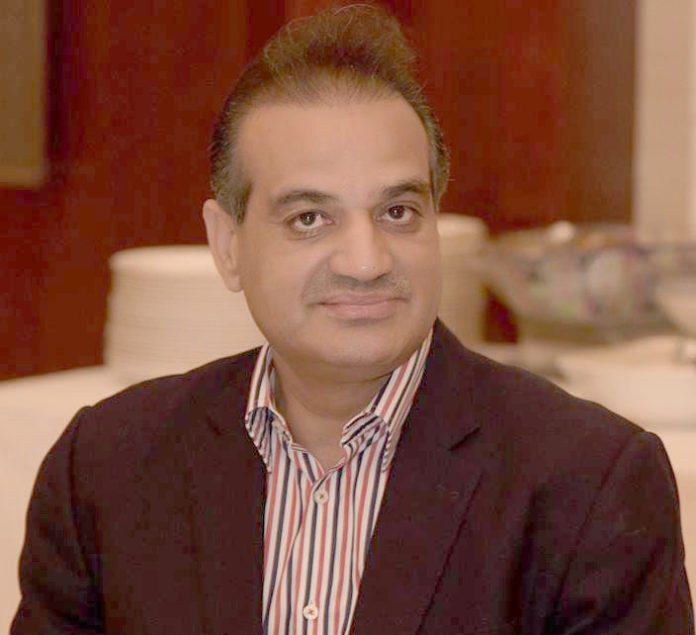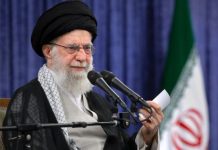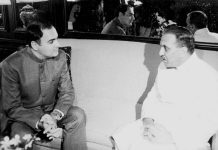Comment
Ansar M Bhatti
The impending elections have come into focus following a decisive move by the Supreme Court, characterized as a ‘commando action,’ wherein it suspended the Lahore High Court’s single-bench verdict concerning the appointment of Returning Officers. The Pakistan Tehreek-e-Insaf (PTI) legal team had approached the Lahore High Court, advocating for the appointment of Returning Officers from the Judiciary instead of the district administration. Even to the PTI’s surprise, the LHC judge not only suspended the Election Commission’s notification but also constituted a larger bench to delve deeper into the case. The CJP Faez Isa was very much within his rights when he questioned the timing and the haste in which the judge had passed the order.
“It is truly remarkable that, initially, the judge issued an order without taking into account the verdict of the apex court regarding the February 8 elections. Subsequently, he recommended the Chief Justice of the Lahore High Court (LHC) to form a larger bench, and remarkably, assumed the role of the head of the five-member bench himself’, as noted by the Chief Justice of Pakistan (CJP). In response, the apex court promptly suspended the LHC order, allowing the Election Commission of Pakistan (ECP) to announce the election schedule on the very same day. Despite initial reluctance, the ECP had no choice but to comply with the Supreme Court’s directives, leading to the announcement of the schedule on the midnight of December 16, 2023.”
As the stage is meticulously set for the upcoming elections, political parties are poised to heighten their election campaigns. The PPP has already launched its extensive mass contact drive, and the PML N is anticipated to follow suit once it concludes the candidate selection process. Notably, political leaders across various parties have echoed their support for a Charter of Economy. While this proposition has been deliberated in the past, tangible progress has remained elusive. The glaring reason behind this stagnation is evident—the pressing need for a singular charter, and that is the Charter against Corruption. Ostensibly, corruption has wrought havoc on the entire system, necessitating urgent and concerted efforts for its eradication.
Amnesty International, in its latest report, has unequivocally labeled corruption as the foremost challenge confronting Pakistan. The comprehensive assessment conducted by the organization scrutinized eight key departments, revealing a distressing reality where the police emerged as the most corrupt entity, closely followed by the judiciary at the second position. This corroborates my steadfast belief that corruption stands as the paramount issue plaguing Pakistan.
Notably, this isn’t the first time that Amnesty International has brought to light the pervasive issue of corruption within the country. A previous survey conducted by the organization underscored the disconcerting fact that even institutions considered ‘prestigious’ were not immune to corrupt practices. It is disheartening to observe that despite the consistent release of such damning reports, little to no concrete actions are taken to address the highlighted concerns.
This cycle of revelation without subsequent remedial action raises serious questions about the commitment of authorities to root out corruption from the system. For any meaningful change to transpire, it is imperative that these reports serve as catalysts for genuine reform and stringent measures against corruption, fostering a system where accountability and transparency are non-negotiable principles. The gravity of the situation demands a collective and sustained effort to dismantle the entrenched culture of corruption, ensuring that these reports not only serve as documentation of the problem but as blueprints for a corruption-free future for Pakistan.
Intriguingly, no political party has ever endeavored earnestly to tackle this menace head-on. Interestingly, all prime ministers starting from 1988 till date have never completed their five-year term. Every time they were ousted from power on charges of corruption.
The military regimes, too, have faced persistent allegations of corruption. During the 11-year rule of Gen Zia Ul Haq from 1979 to 1988, a pervasive atmosphere of financial gain enveloped those in power amid the Afghan Jihad. This period coincided with a surge in sectarian violence in Pakistan, reaching its zenith. Tragically, the nation witnessed hundreds of thousands of casualties in the brutal clashes between Shia and Sunni factions. The intertwining of political and military interests during this era not only fueled corruption but also exacerbated social tensions, leaving a lasting impact on the fabric of Pakistani society.
Benazir Bhutto assumed power following the demise of General Zia in a plane crash, winning the elections that ensued. However, her government faced a tumultuous tenure, marked by allegations of extensive corruption among high-ranking officials. This led to her removal from office within a relatively short span of two and a half years. The subsequent administrations, represented by both the PML N and PPP, similarly faced premature dismissals due to comparable charges of corruption at the highest echelons of power. This pattern of governance challenges highlighted the persistent issue of corruption within the political landscape, shaping the course of successive governments in Pakistan.
The takeover by General Pervez Musharraf in 1999 was met with mixed reactions, despite Nawaz Sharif’s two-thirds majority in Parliament. The Nawaz-Military face-off was driven by various factors, and the aftermath of his ouster surprised Nawaz Sharif, who acknowledged the unexpected response from the public. People’s sentiments seemed to shift unexpectedly; while many expressed support for him verbally, the reality was different.
Even Nawaz Sharif himself was taken aback by the lack of tangible support when he was removed. Supporters who had initially encouraged him to proceed viz a viz his estranged relations with the military, were nowhere to be found when the time came. The disconnect between the verbal assurances and the actual support on the ground left Nawaz Sharif in a challenging situation. The obvious reason perhaps was his disconnect with his electorates and so is the case with other political parties.
The PTI, however, presented a unique case. Imran Khan’s removal from power triggered an immediate and impassioned public response, underscoring the widespread dissatisfaction with the manner in which he was ousted, despite his government’s lackluster performance. His political opponents employed a variety of tactics, yet failed to diminish his popularity. This resilience can be attributed to Imran Khan’s decision to confront the situation head-on rather than fleeing the country after striking deals as other leaders did upon their removal from the office.
When it comes to addressing corruption, Imran Khan’s tenure is unfortunately not an exception. Regrettably, corruption witnessed a significant surge during his time in office. Despite harboring a sincere desire to eradicate corruption from Pakistan, Imran Khan faced challenges that hindered effective action in this regard.
The current scenario, as reflected in the statements and speeches of political leaders during public rallies, is disheartening. Sadly, it appears that none of them is genuinely committed to addressing the menace of corruption once in power. If this trend persists, it is inevitable that our nation will face an uncertain future, plagued by ongoing economic distress that will disproportionately impact the well-being of its citizens.

















